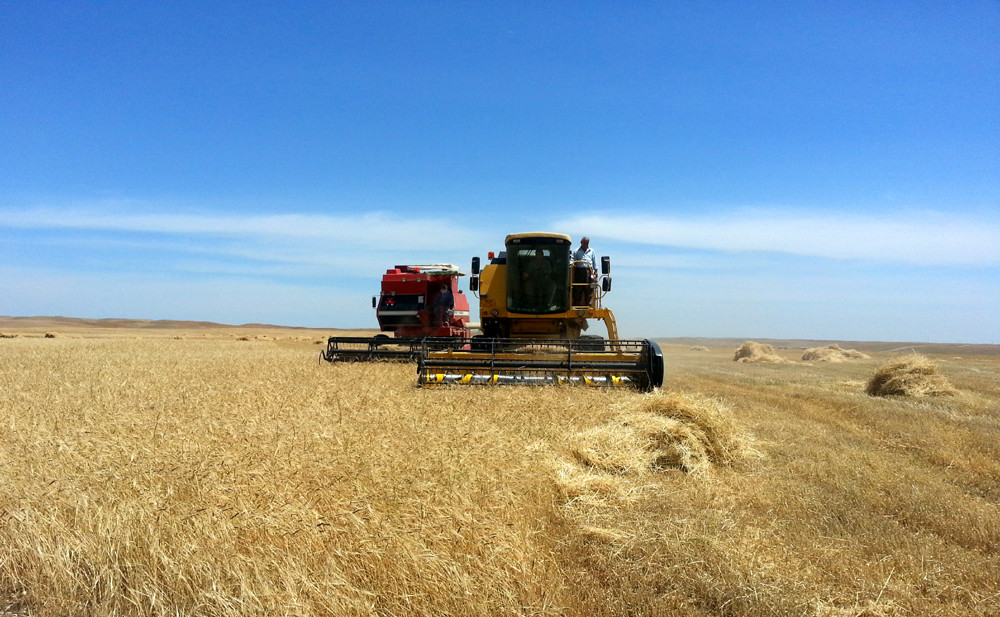Kirkuk agriculture office predicts drop of crops into half due to lack of anticipated rainfall while the demand is getting higher pushing prices up by 26%.
Kirkuk agriculture study is based on rainfall for 2021 which was only 104mm, the least in the last 20 years, compared to 283 mm in 2020 and 535 in 2019.
Nazim Hassan, a farmer from Haftaghar, in Daquq district southwest of Kirkuk, told KirkukNow that they depend on rainfall as the lands are rainfed. “Unfortunately, this year the rainfall was too short in particular when crops were in need for water.”
“Current year products will not cover its expenses. IN general, absence of rainfall hurt all agricultural products and orcharding.”
“Current year products will not cover its expenses. IN general, absence of rainfall hurt all agricultural products and orcharding.”
Kiukuk agriculture has set an annual plan to plant one million donums all over the province yet only 700,000 donums were cultivated, Zuher Ali director of Kirkuk agriculture office.
Ali expects 350,000 tons of crops while in 2020, over 600,000 tons were produced.

Wheat harvest in a Kirkuk agricultural land. Photo by Karwan Salihi.
In Daquq district, out of 127,000 donums cultivated for wheat and barley, 50,000 rainfed donums will not generate any products while the other 77,000 donums depdned half on rainfall and half on ground water, said Ayad Ahmed, manager of planning and follow-up in Daquq agriculture.
“Another reason is lack of proper power supply made it difficult for farmers to irrigate their grown crops,” he added.
Daquq has delivered 48,000 tons of wheat and 128,000 tons of barley to Iraqi ministry of trade while it predicted to reduce to half.
Iraqi government purchases local products from farmers and later re distribute in a food ration program to Iraqi families, a monthly basket includes wheat, rice, cooking oil and some other items like lentil.
Iraqi government has decided to pay Iraqi Dinar IQD610,000 ($410) for a ton of wheat and 400,000 for barley but in a delayed payment pushing farmers to pump it directly into the markets for lower prices.
“Iraqi government delays payments of farmers whom in the last years market their products directly to traders to get their payments on time,” Ali added.
Due to insufficient rainfall and less products, a ton of wheat has gone up from 380,000 to 480,000 in the last two days, and barley from 280,000 to 380,000 for the rise in demand by cattle farms, Ali said.
In a step to defy the rainfall challenge, farmers of Daquq have received a new type of seed called Rose line which requires less water and resists drought and diseases, Ihsan Rashad, agricultural engineer in agricultural guidelines of Daquq agriculture office.
“It grows twice high and can be harvested twice as well,” he added.
Rashad called on the farmers to use this type of seed as they have tested it, has experience and can guide the farmers.
“We are sure its outcome will be satisfying.”




